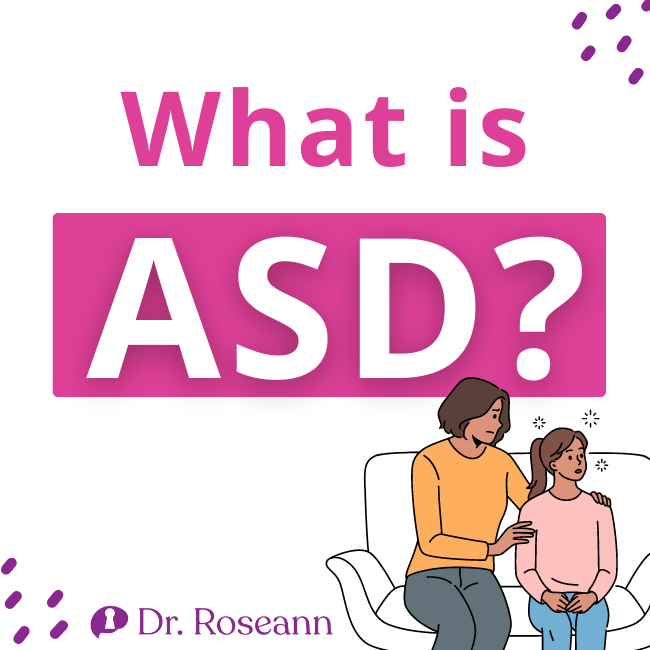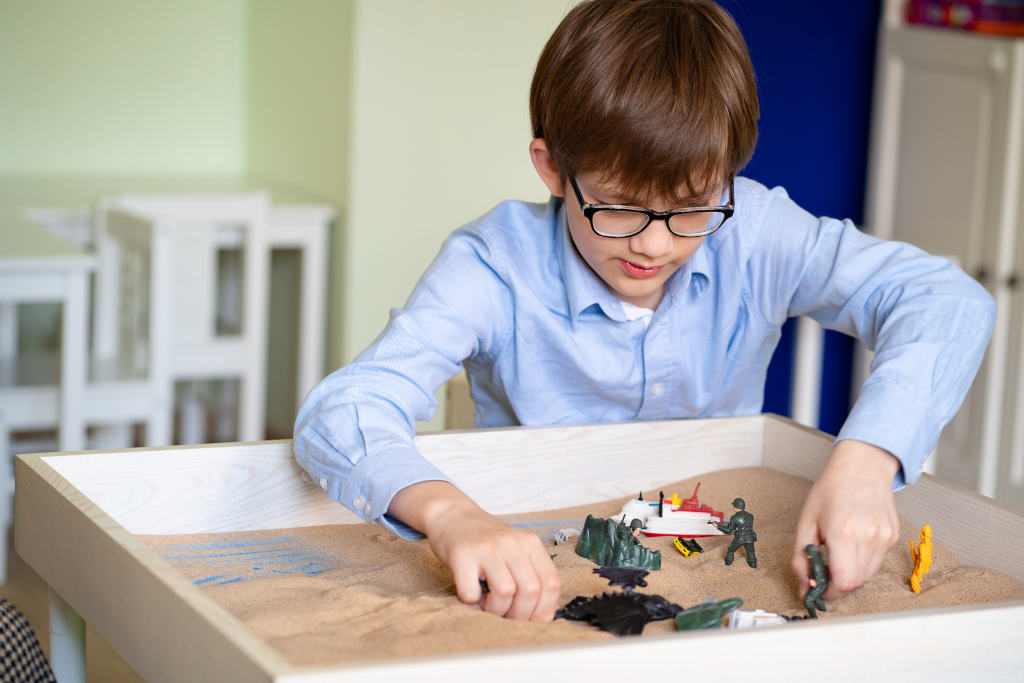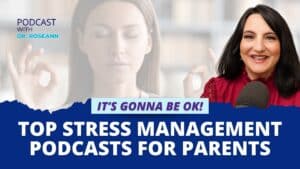OCD, or Obsessive-Compulsive Disorder, is challenging to treat on your own without support from clinical psychology experts. Many try to manage their own OCD without ever really finding a treatment that helps. It is a misunderstood and often missed mental health condition that is complex to treat because of these issues and families often inadvertently reinforce OCD behaviors.
I recall a teenager named Graham who already had OCD for 10 years, had nine therapists and had been on 3 psychiatric medications before he started our BrainBehaviorReset™ Program. Within just a few weeks he progressed more than he had in 10 years with a combination
Complicating matters is that research shows that OCD often co-occurs with other mental health issues, particularly anxiety and mood disorders (LaSalle et al., 2004).
Autism Spectrum Disorder, or ASD, is another mental illness that can coexist with OCD. Symptoms of ASD can appear as early as nine months of age and must be managed throughout adulthood. ASD occurs along a spectrum with symptoms varying from person to person but difficulties with social skills and language at its core.
There is an overlap between OCD and ASD. The behavioral characteristics associated with OCD, such as anxiety, repetitive behavior, and social problems, are also common in people with ASD. ASD and OCD may appear similar on the surface, but there's a key difference in their underlying processes, which means each condition requires a different approach.
If your child has OCD and comorbid ASD, conventional OCD therapy will not work, and vice versa. Therefore, an essential aspect of diagnosis is determining whether a patient's behaviors are related to ASD or OCD. Unfortunately, treating patients with both neurological disorders has proven to be challenging for most parents.
What is OCD?

An individual with OCD will repeat time-consuming mental and behavioral rituals due to irrational fears. The underlying reason for these OCD rituals is anxiety, which is the root of the issue, that morphs into irrational fears that guide behavior.
People with OCD often deeply believe that their fears, the rituals they perform, and the consequences of these rituals are all connected. They think that if they do XYZ, then the bad thing won’t happen. The brain reinforces its behavior through a process called a negative reinforcement cycle, which makes the behavior more likely to happen.
OCD is a hijacker and it negatively impacts a child's development, relationships, and future. It can quickly spiral because of the negative reinforcement cycle and hijack a family’s life as well.
OCD is often thought to be only about compulsive behaviors, which is one of the most common symptoms of OCD. However, obsessive thinking is even more common, making the condition harder to detect.
The key to the child's OCD recovery is early intervention. These compulsions and obsessions could devastate your child's future if left untreated. The problem is further complicated because it is hard to find a qualified OCD mental health professional.
What is ASD?

Autism Spectrum Disorder has increased from 1 in 150 children in 2000 to 1 in 44 children in 2018 according to the CDC. Social difficulties, repetitive behaviors, limited interests, speech difficulties, and nonverbal communication are all characteristics of autistic people.
Autism behaviors occur along a spectrum, with some children having cognitive impairments and others having average or high intelligence along with specific behaviors but there is an impact for all autistics at school and home.
There will be functional impacts on an autistic's daily life, particularly social interaction, social communication, learning, and attention. Since autism can be challenging to detect in those with a higher intellect and compensatory skills, it's not uncommon for a teen or adult to be diagnosed later in life with autism.
OCD, ASD, and Anxiety
OCD used to be a form of anxiety disorder until recently when it was moved to a separate category in the DSM. On the other hand, anxiety conditions, such as phobias and generalized anxiety disorder, are among the common comorbid conditions for autistics (Van Steensel et al., 2011).
Anxiety isn't regarded as an ASD core feature, but 40% of children and teens with ASD exhibit heightened anxiety levels and OCD behavior. Due to sensory sensitivities, social difficulties, and rigid brain functioning, emotional dysregulation is common. Therefore, it's essential to diagnose and treat anxiety in ASD as it significantly impacts the core aspects of this neurodevelopmental disorder and may aggravate other symptoms.
Diagnosing anxiety in an autistic child due to altered presentations and overlapping symptoms is difficult. Autistic children and teens who aren't very verbal won't talk about their worries and demonstrate their anxieties using disruptive behaviors instead which makes it easy to miss.
Behavior is the language of children, so we need to pay attention to what causes their behavior and try to support their sensory, social, and emotional needs
Overlapping Symptoms of Kids with OCD and ASD

While the behaviors and symptoms differ between OCD and autism, some overlapping features and characteristics of both disorders are noted.
Compulsions
Compulsions refer to the repetitive behaviors children and teens with OCD feel. It urges them to do these compulsions in response to their obsessive thoughts. Some of the most common compulsions are excessive hand washing, checking, cleaning, and arranging or strictly ordering things.
For autistic children and teens, these compulsions are similar to their rituals or routines. These routines or ritualistic behaviors become part of their lives and can be driven by sensory needs or a desire for sameness It explains why autistic children like sleeping in a specific position, touching a pillow before bed, putting their toys in the corner of the room, and others.
Repetitive Behaviors
Children with OCD will feel compelled to perform routines or check things repeatedly for over an hour daily to relieve their anxiety. Such repetitive behaviors will disrupt school activities, house chores, and social relationships if not treated. It also causes feelings of distress when they can’t perform their ritual to “prevent the bad thing from happening.”
Autism spectrum disorders are characterized by repetitive and restrictive behaviors, activities, and interests. The stereotyped and repetitive movements of autistic children include lining up objects and flapping their hands, among others. They result from a brain that is rigid and is not performed in response to fear.
Sensory Overload Issues
Children and teens with OCD often exhibit abnormal sensitivity to sensory stimuli and a reduced ability to filter them out due to stress overload and revving up the nervous system. As a result, their compulsive behaviors can be triggered by their intrusive thoughts and intolerance or repeated experiences of ordinary sensory stimuli (Hazen et al., 2008).
Most autistic children are overly sensitive to sight, sound, smell, touch, or taste. However, some barely notice those at all. Some may also seek out sensations by repeatedly stroking items of certain textures. Autistics can be both sensory-seeking and sensory-avoidant. They may show behaviors in an effort to avoid sensory experiences.
Sleep Disorders
Children and teens with OCD experience frequent insomnia caused by their obsessive thoughts causing difficulties in settling for sleep. These kids can be up all night when trapped in their repetitive thoughts. Having restless nights can be a terrible cycle, and you might not know where to begin to alleviate them.
With ASD, there's evidence that sleep and alterations in the synchronization of the melatonin rhythm can cause sleep problems. Other neurotransmitters such as ASD, serotonin, and GABA are also required to establish a regular sleep-wake cycle. Melatonin regulation is abnormal in autistic children. Impairments in producing these neurotransmitters disrupt sleep (Devnani & Hegde, 2015).
Intolerance of Uncertainty
Autistic children may negatively react to new events or situations due to anxiety because they can't predict what will happen next. As they can't tolerate uncertainty, their behavior, thoughts, and feelings get affected. Autistic children find uncertainty very uncomfortable and stressful and always try to avoid it. It's why autistic kids tend to refuse social situations or group events.
Children and teens with OCD exhibit a prominent feature called pathological doubt, which is related to difficulty tolerating uncertain or ambiguous situations. It's also one of the reasons why they show checking compulsion symptoms (Tolin et al., 2003).
With uncertain situations, a person with OCD may have increased fears around their triggers and being able to control them. It isn’t unusual when OCD begins to spiral that school refusal becomes an issue as well.
Treatment for OCD and Autism

As cases of OCD and anxiety are on the rise, parents believe that there aren’t many treatments to possibly use for their child, aside from traditional psychiatric medicines. The good news is that science tells us there are many therapies and treatments available for those with anxiety, OCD, and autism.
Exposure and Response Prevention
Exposure and Response Prevention, or ERP, is an effective treatment for OCD. It is a type of CBT that exposes an individual to their trigger so they'll learn how to be uncomfortable until they can ignore it. The first step is to identify all triggers. Then the therapist will expose the child or teen to the situations that trigger their anxiety, obsessions, and compulsions. The process starts with gradual intensity until it gets moderate.
ERP emphasizes having parents teach the child how to deal with discomfort instead of avoiding it, as avoiding triggers leads to negative reinforcement. In addition, exposure increases your child's anxiety in the short term and decreases it in the long run.
Parents are an important part of the process and are taught just how to strategically dismantle OCD behaviors. Working with a highly skilled OCD specialist is a critical part of the process.
Neurofeedback
Neurofeedback can also help significantly in young people with OCD and autism. Regular neurofeedback therapy sessions reduce an autistic or OCD child's overactive brainwaves and retrain the brain to reduce the symptoms of obsessive-compulsive disorder. With both conditions, the brain has hyper communication that needs to be regulated and that is exactly what neurofeedback does. All these make neurofeedback an effective ASD and OCD treatment.
Recent studies tested neurofeedback as a treatment on ten children ages 4 to 7 years old diagnosed with high-functioning autism suffering from speech impairment and having trouble communicating. Results show that there were changes in the children's behavior. They were more cooperative and less aggressive. They also exhibit better communication, higher attention spans, and improved sensory motor skills (Zivoder et al., 2015).
Pulsed Electromagnetic Fields
Pulsed Electromagnetic Fields, or PEMFs, ease the brain to think, focus, and take action. PEMF is an excellent treatment since it calms the body and relieves those uncomfortable sensations, especially in addressing anxiety related to autism and OCD.
These are just some natural solutions supported by clinical trials that can work for your child with OCD or ASD. If you're looking for a treatment plan that will work for your kid without using medications, we can help. At our Ridgefield center and virtually, we help parents get an accurate diagnosis of OCD or ASD for their child and manage their anxieties and common obsessions.
Getting the right OCD or ASD diagnosis is critical to ensure your child receives the right treatment plan to address their nervous system and functional impairments.The correct treatment plan won't just provide temporary relief but a way to lead them to the first steps toward a calmer happier life.
Cognitive Behavioral Therapy
Cognitive Behavioral Therapy, or CBT, works at the conscious level. CBT works by correcting the misperceptions around how people perceive a situation and its connection to their reactions rather than to the situation itself.
CBT combines talk and behavioral therapy to reframe one's negative or unwanted thoughts and turn them into positive ones and is a great treatment option for those experiencing anxiety.
Citations
Devnani, P., & Hegde, A. (2015). Autism and sleep disorders. Journal of Pediatric Neurosciences, 10(4), 304. https://doi.org/10.4103/1817-1745.174438
Hazen, E. P., Reichert, E. L., Piacentini, J. C., Miguel, E. C., do Rosario, M. C., Pauls, D., & Geller, D. A. (2008). Case Series: Sensory Intolerance as a Primary Symptom of Pediatric OCD. Annals of Clinical Psychiatry, 20(4), 199–203. https://doi.org/10.1080/10401230802437365
LaSalle, V. H., Cromer, K. R., Nelson, K. N., Kazuba, D., Justement, L., & Murphy, D. L. (2004). Diagnostic interview assessed neuropsychiatric disorder comorbidity in 334 individuals with obsessive-compulsive disorder. Depression and Anxiety, 19(3), 163–173. https://doi.org/10.1002/da.20009
Tolin, D. F., Abramowitz, J. S., Brigidi, B. D., & Foa, E. B. (2003). Intolerance of uncertainty in obsessive-compulsive disorder. Journal of Anxiety Disorders, 17(2), 233–242. https://doi.org/10.1016/s0887-6185(02)00182-2
Van Steensel, F. J. A., Bögels, S. M., & Perrin, S. (2011). Anxiety Disorders in Children and Adolescents with Autistic Spectrum Disorders: A Meta-Analysis. Clinical Child and Family Psychology Review, 14(3), 302–317. https://doi.org/10.1007/s10567-011-0097-0
Zivoder, I., Martic-Biocina, S., Kosic, A. V., & Bosak, J. (2015). Neurofeedback application in the treatment of autistic spectrum disorders (ASD). Psychiatria Danubina, 27 Suppl 1, S391-394. https://pubmed.ncbi.nlm.nih.gov/26417802/
Always remember… “Calm Brain, Happy Family™”
Are you looking for SOLUTIONS for your struggling child or teen?
Dr. Roseann and her team are all about solutions, so you are in the right place!
There are 3 ways to work with Dr. Roseann:
You can get her books for parents and professionals, including: It’s Gonna Be OK™: Proven Ways to Improve Your Child’s Mental Health, Teletherapy Toolkit™ and Brain Under Attack: A Resource For Parents and Caregivers of Children With PANS, PANDAS, and Autoimmune Encephalopathy.
If you are a business or organization that needs proactive guidance to support employee mental health or an organization looking for a brand representative, check out Dr. Roseann’s media page and professional speaking page to see how we can work together.
Dr. Roseann is a Children’s Mental Health Expert and Therapist who has been featured in/on hundreds of media outlets including, CBS, NBC, FOX News, PIX11 NYC, The New York Times, The Washington Post,, Business Insider, USA Today, CNET, Marth Stewart, and PARENTS. FORBES called her, “A thought leader in children’s mental health.”

She is the founder and director of The Global Institute of Children’s Mental Health and Dr. Roseann Capanna-Hodge. Dr. Roseann is a Board Certified Neurofeedback (BCN) Practitioner, a Board Member of the Northeast Region Biofeedback Society (NRBS), Certified Integrative Medicine Mental Health Provider (CMHIMP) and an Amen Clinic Certified Brain Health Coach. She is also a member of The International Lyme Disease and Associated Disease Society (ILADS), The American Psychological Association (APA), Anxiety and Depression Association of America (ADAA) National Association of School Psychologists (NASP), International OCD Foundation (IOCDF) International Society for Neurofeedback and Research (ISNR) and The Association of Applied Psychophysiology and Biofeedback (AAPB).
© Roseann-Capanna-Hodge, LLC 2023
Disclaimer: This article is not intended to give health advice and it is recommended to consult with a physician before beginning any new wellness regime. *The effectiveness of diagnosis and treatment vary by patient and condition. Dr. Roseann Capanna-Hodge, LLC does not guarantee certain results.













